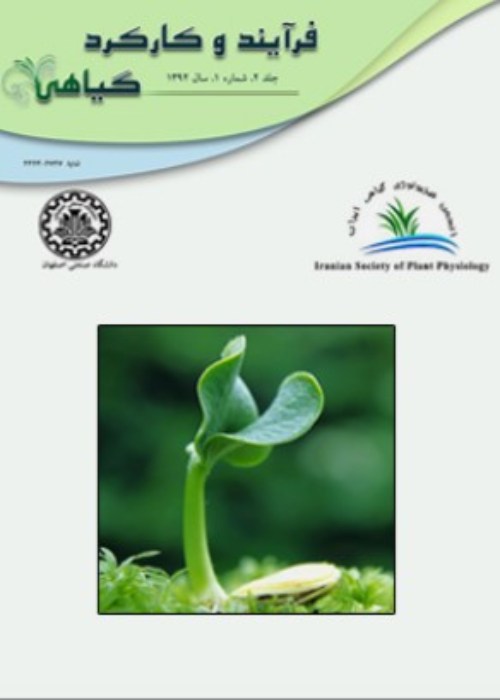Determination of salt tolerance threshold and effects of using saline water on grain yield and yield components of fenugreek (Trigonella foenum-graceum L.)
Land salinization is a major limiting factor for conventional crop production. Cultivation of salt tolerant medicinal plants has been suggested as one of the strategy for utilizing saline soil and water resources. Fenugreek (Trigonella Foenum-graecum L.) is one of the medicinal plants that has a long history of use in traditional medicine and has many therapeutic properties. This research was conducted to determine the salt tolerance threshold and to evaluate effects of utilizing saline water on grain yield and yield components under greenhouse conditions. Treatments were included seven levels of salinity (0.5, 2, 4, 6, 8, 10 and 12 dS/m) obtained by mixing saline groundwater (14 dS/m) and fresh water resources. A leaching fraction of 30 percent was considered to wash out some excess salts from soil profile and preventing their accumulation in the root zone. In order to control soil salinity, the amount and electrical conductivity of both irrigation and drainage water was measured in all irrigation practices. The statistical design was arranged as a complete randomized block design with three replications. In this research, different experimental models was used to determine the salt tolerance threshold, the slope of grain yield reduction, the amount of salinity at which grain yield was reduced by 50 percent (EC50) and the salt tolerance index, as well. Results showed that there was a statistically significant difference among different salinity levels. Based on the results, salinity treatment reduced pod length, pod weight, number of seeds per pod, number of pods per plant, number of filled seeds per plant, filled to unfilled seeds ratio, shoot dry weight, straw weight, thousand-seed weight, grain yield, harvest index and water use efficiency and increased percentage of unfilled seeds. Although salinity stress had an adverse effect on most studied traits, the trend of this effect varied depending on the trait. Based on the linear model, the fenugreek salt tolerance threshold and the slope of yield reduction was 1.28 dS/m and 4.91 percent, respectively. However, according to non-linear models, a reduction of 10 and 25 percent in relative grain yield occurred at 3.38 and 6.28 dS/m, respectively. According to the results of this study, the salinity at which the relative grain yield decreased by 50% percent (EC50) was observed at soil salinity of 11.67 dS/m. In this research, the fenugreek salt tolerance index was calculated as 12.24. Therefore, based on both the salinity tolerance threshold, the slope of yield reduction and salinity tolerance index, fenugreeks can be classified into the group of moderately sensitive to salinity plants.
- حق عضویت دریافتی صرف حمایت از نشریات عضو و نگهداری، تکمیل و توسعه مگیران میشود.
- پرداخت حق اشتراک و دانلود مقالات اجازه بازنشر آن در سایر رسانههای چاپی و دیجیتال را به کاربر نمیدهد.



